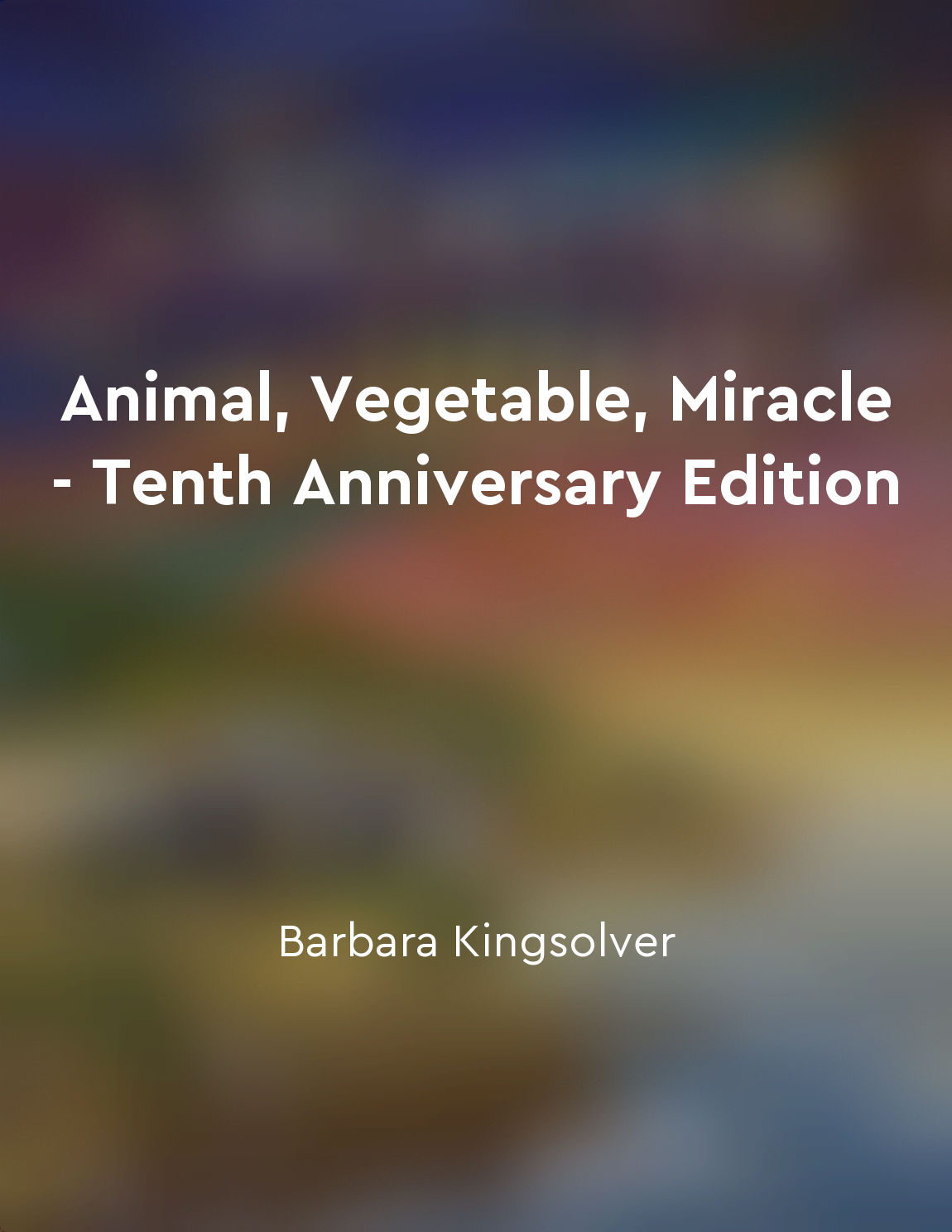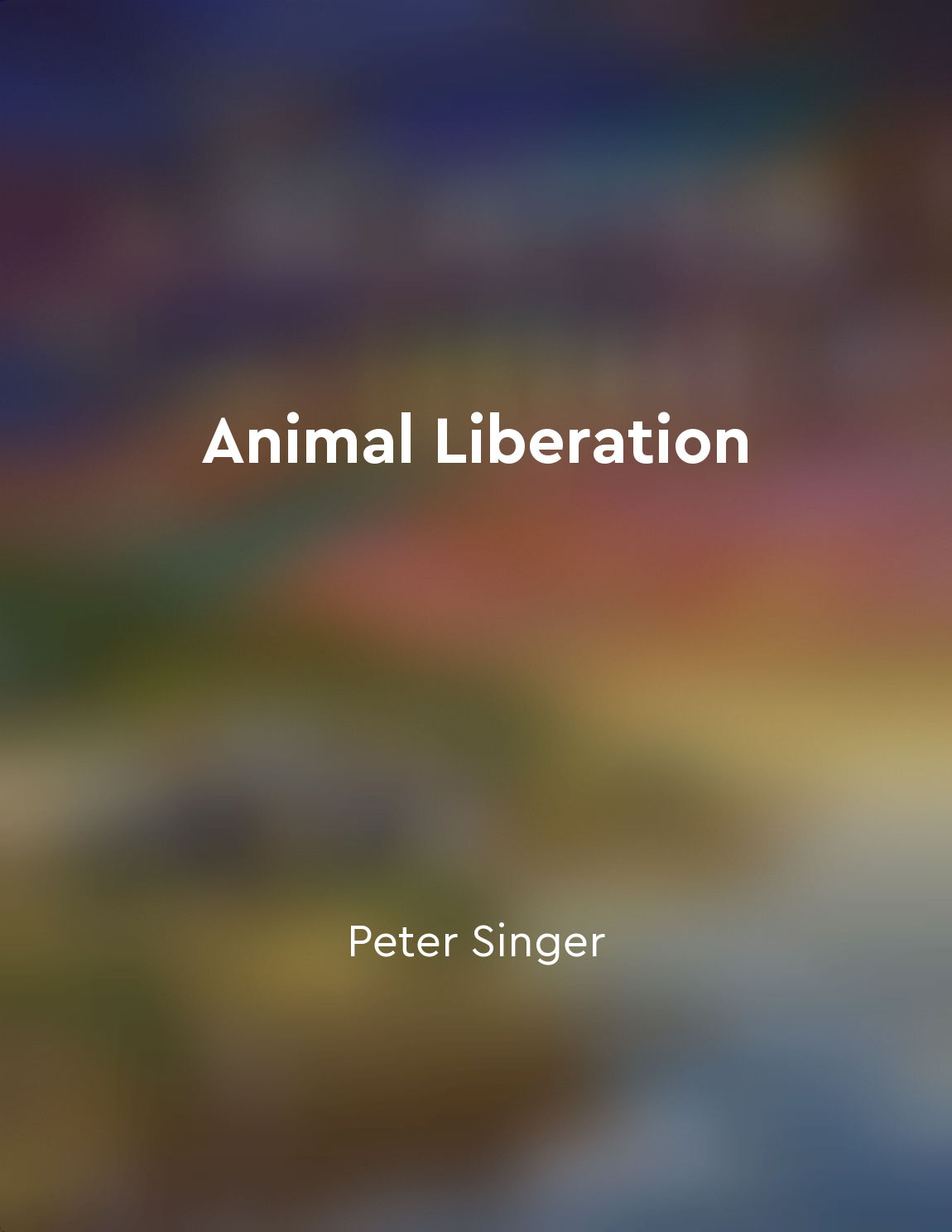Eating meat contributes to animal exploitation from "summary" of Animal Liberation by Peter Singer
Eating meat contributes to animal exploitation. When we choose to consume animal products, we are supporting an industry that thrives on the suffering of animals. These animals are bred, raised, and slaughtered solely for human consumption, without regard for their well-being or basic rights. The demand for meat drives the need for more animals to be raised in factory farms, where they are confined in cramped and unsanitary conditions. In these factory farms, animals are subjected to cruel and inhumane treatment. They are often deprived of their natural behaviors and instincts, leading to physical and psychological distress. Many animals are also subjected to painful procedures such as debeaking, tail docking, and castration without anesthesia. The sole purpose of these practices is to increase efficiency and profit for the meat industry, regardless of the suffering inflicted upon the animals. Furthermore, the environmental impact of meat production cannot be ignored. The livestock industry is a significant contributor to deforestation, water pollution, and greenhouse gas emissions. The resources required to raise animals for food far exceed those needed for plant-based alternatives. By choosing to consume meat, we are not only contributing to the exploitation of animals but also perpetuating environmental degradation on a global scale. It is crucial to recognize the consequences of our dietary choices and the ethical implications of supporting an industry that values profit over the well-being of living beings. By adopting a plant-based diet, we can reduce the demand for animal products and alleviate the suffering of countless animals. Making a conscious effort to choose cruelty-free alternatives is a small but impactful step towards promoting a more compassionate and sustainable world for all beings involved.Similar Posts
Cooking at home is healthier than eating out
When we prepare our own meals at home, we have complete control over the ingredients we use. This means we can choose fresh, wh...

Food is political
When we sit down to eat, we are making a choice. We are choosing what to put into our bodies, what to support with our dollars,...
Adaptability is key to survival
Adaptability lies at the heart of survival in an ever-changing world. The ability to adjust and thrive in the face of shifting ...

Eating for health is a lifestyle choice
Eating for health is a lifestyle choice. This simple yet profound concept is at the core of achieving optimal health and longev...
Crop monocultures deplete soil nutrients and harm biodiversity
The problem of monoculture is that it represents an extreme form of simplification. When you plant a single crop over a large a...
Call for social change and revolution
The Jungle" is a powerful narrative that paints a vivid portrait of life in the early 20th century industrial America. Through ...

